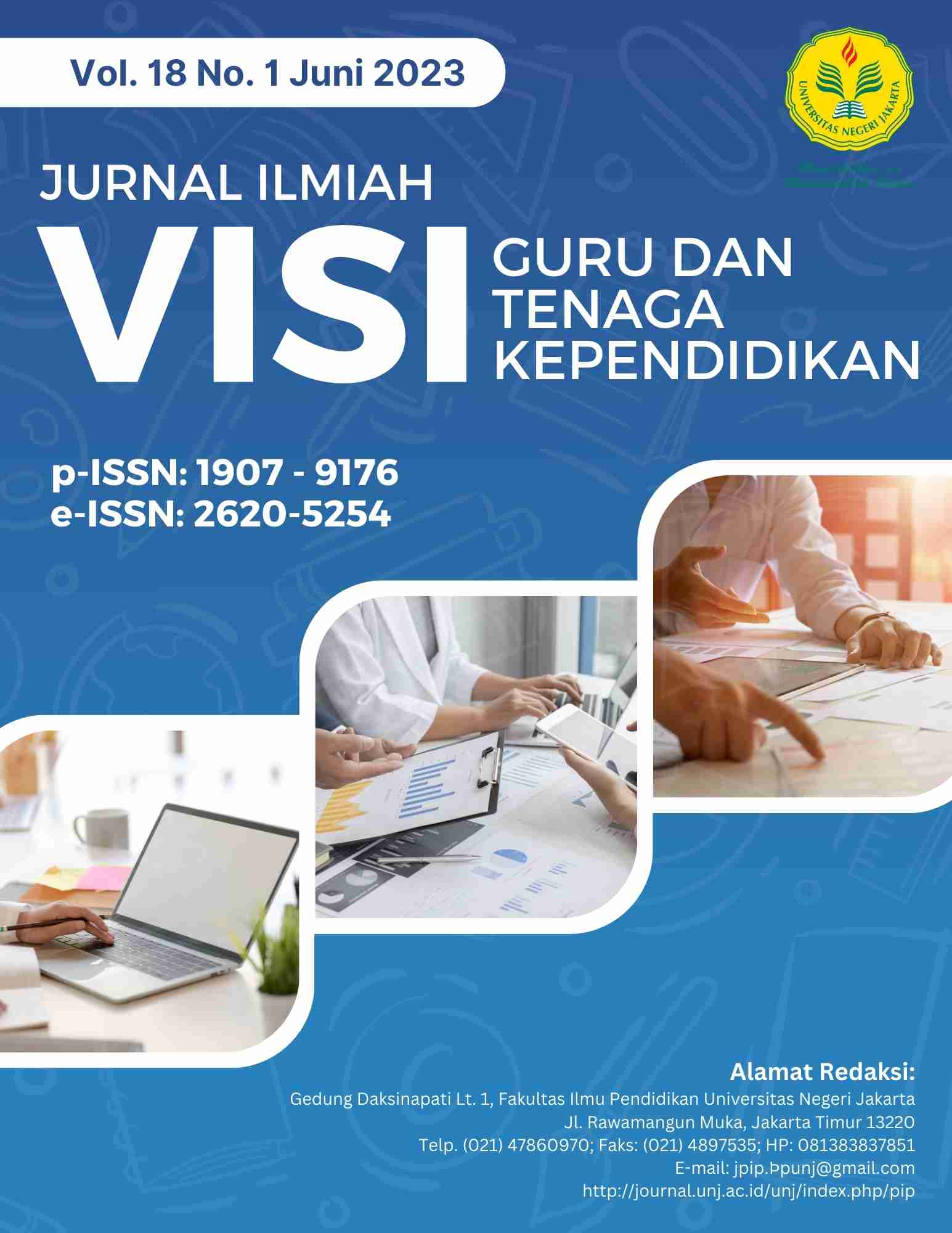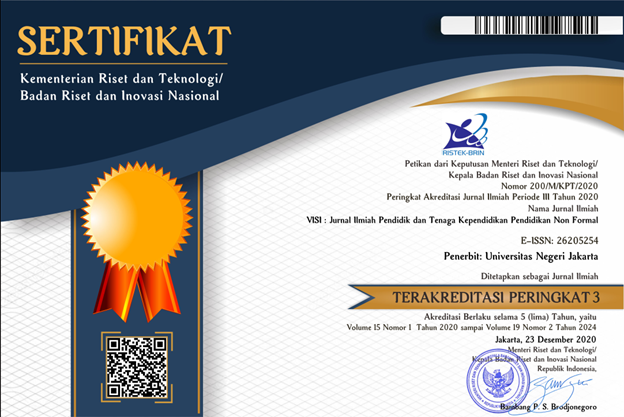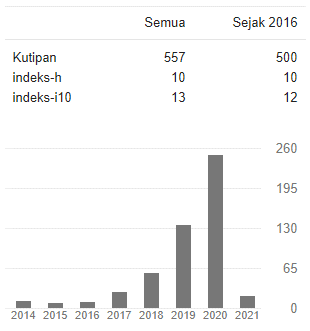IMPROVING SCIENCE LITERACY SKILLS USING THE DEVELOPMENT OF LKPD BASED ON THE PROBLEM BASED LEARNING (PBL) MODEL IN ELEMENTARY SCHOOL STUDENTS
DOI:
https://doi.org/10.21009/JIV.1801.1Keywords:
Scientific literacy skills, LKPD development, PBL modelAbstract
Indonesia's ranking related to scientific literacy has not experienced a significant increase. In fact, in facing increasingly difficult challenges in the 21st century, students must have literacy skills. The importance of scientific literacy skills in education makes scientific literacy a standard measure of the quality of education. This study aims to determine the effect of learning using the problem-based learning model-based LKPD development on elementary students' scientific literacy abilities. This research is included in the experimental research. A sample of 27 elementary school students class V B SDN 147 Gresik. This research was conducted in March-May 2023 at SDN 147 Gresik. Scientific literacy skills were carried out 2 times, namely pretest and posttest. Based on the normality test, it was found that the value was < 0.05, indicating that the data distribution was not normal. The results of the Wilcoxon signed ranks test obtained a significance value of P of 0.000 < 0.05. The conclusion obtained is that there is an effect of learning using the problem-based learning model-based LKPD development on the scientific literacy abilities of elementary students. Subsequent studies require LKPD research based on problem-based learning models on other elementary learning materials.
Downloads
Published
How to Cite
Issue
Section
License
Authors who publish with this Journal agree to the following terms:
- Author retain copyright and grant the journal right of first publication with the work simultaneously licensed under a creative commons attribution licensethat allow others to share the work within an acknowledgement of the work’s authorship and initial publication of this journal.
- Authors are able to enter into separate, additional contractual arrangementfor the non-exclusive distribution of the journal’s published version of the work (e.g. acknowledgement of its initial publication in this journal).
- Authors are permitted and encouraged to post their work online(e.g. in institutional repositories or on their websites) prior to and during the submission process, as it can lead to productive exchanges, as well as earlier and greater citation of published works.
- Users/public use of this website will be licensed to CC BY-NC-SA Creative Commons Attribution-NonCommercial-ShareAlike 4.0 International License









